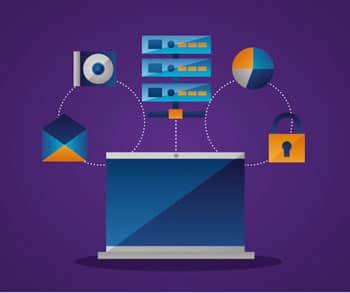Digital Forensics in Corporate Investigations in Kenya

In recent years, digital forensics has become an important aspect of corporate investigations in Kenya. With the rapid advancement of technology, digital devices and data play an increasingly important role in business operations and decision-making processes. Therefore, it’s necessary for companies to have a robust digital forensics framework in place to tackle various issues that arise from digital data.
Types of Corporate Investigations:
In Kenya, corporate investigations can be classified into several categories such as:
- Fraud investigations
- Insider threat investigations
- Intellectual property theft investigations
- Data breaches and cyber-crime investigations
Role of Digital Forensics in Corporate Investigations:
Digital forensics plays a crucial role in corporate investigations as it helps in collecting, analyzing, and preserving digital evidence. With the increasing use of technology, digital evidence is often a crucial component in solving complex corporate investigations. Digital forensics experts are able to recover deleted files, analyze email correspondence, and identify patterns in data to uncover the truth behind the incident.
Devices evidence is acquired from
- Hard Drives
- Laptops
- Servers
- Emails
- Mobile Phones
- Personal Computers (PCs)
- Tablets
- Websites
- Flash Disks
- Memory cards
- CCTV Footage etc
Digital Forensics Process in Kenya:
The digital forensics process in Kenya consists of several stages, including:
- Evidence collection: This involves the identification, preservation, and collection of relevant digital evidence from various sources such as computers, mobile phones, and other digital devices.
- Analysis: Once the evidence is collected, it is analyzed using various tools and techniques to uncover the facts behind the incident.
- Reporting: The findings from the analysis are then documented and presented in a clear and concise manner in the form of a digital forensics report.
Challenges in Digital Forensics Investigations in Kenya:
Despite the significant role digital forensics plays in corporate investigations, there are several challenges that investigators face in Kenya. Some of these challenges include:
- Lack of technical expertise: There is a shortage of digital forensics experts in Kenya, making it difficult for companies to access the necessary skills and resources to carry out effective investigations.
- Data privacy laws: Kenya has strict data privacy laws that need to be followed when conducting digital forensics investigations, making it difficult to access certain types of evidence.
- Inadequate infrastructure: There is a lack of adequate digital forensics infrastructure, including the necessary tools and resources, making it difficult to carry out effective investigations.
Conclusion:
Digital forensics is an important aspect of corporate investigations in Kenya. With the increasing use of technology in business operations, digital evidence plays a crucial role in uncovering the truth behind incidents. Despite the challenges, digital forensics companies in Kenya provide with the necessary tools and resources to tackle complex investigations effectively.









